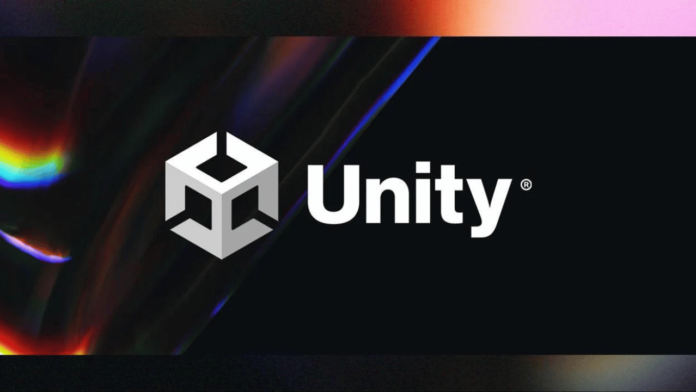Unity, a prominent tech company known for its game development engine, recently announced a significant shift in its pricing structure, which triggered outrage within the game development community. The proposed fees, justified by Unity as necessary for funding the development of its technology, raised concerns among game developers about the financial viability of creating games using Unity.
Runtime Fee..? Imposed by Unity:
The newly introduced “Runtime Fee,” unveiled by Unity, is directly tied to the number of installations of a game, a facet that was previously free for developers. Under this plan, developers using Unity’s free development services would incur a fee of $0.20 per installation once their game surpassed 200,000 downloads and generated $200,000 in revenue. Developers subscribing to Unity Pro plans costing over $2,000 annually would face different thresholds and lower fees. The implementation of this new fee system is scheduled to commence at the start of 2024.
However, this announcement led to immediate backlash from game developers, who expressed concerns that their games, experiencing a sudden surge in installations due to factors such as sales, charity bundles, or inclusion in subscription services like Microsoft’s Game Pass, would incur substantial Unity fees.
Prominent game development studio Innersloth, creators of the popular game Among Us, voiced their discontent on Twitter, stating, “Stop it. This would harm not only us but fellow game studios of all budgets and sizes.” Another studio, Aggro Crab, feared that their upcoming game, slated for release to 25 million Game Pass subscribers, could face fees that could jeopardize their business’s stability.
In response to the mounting criticism, Unity executives, led by Marc Whitten, attempted to clarify and modify the company’s stance on the fee structure. Initially, Unity indicated that multiple fees would be charged if a player installed a game, deleted it, and then reinstalled it.
However, Whitten later clarified that Unity would only charge for the initial installation. An additional fee would apply if a user installed the game on a second device, such as switching from a PC to a Steam Deck.
Whitten also revealed that runtime fees would not be imposed on installations of game demos, except when the demo was integrated into a download that included the full game. Furthermore, games offered for charity purposes or included in charitable initiatives would be exempt from these fees. Unity planned to provide a mechanism for developers to inform the company when their games were part of charity efforts.
Regarding subscription services like Game Pass, Whitten reassured developers that the fees would be charged to the distributors, not the developers themselves. He estimated that only about 10% of company developers would ultimately be affected by the new fee structure due to the thresholds games needed to meet.
Unity CEO John Riccitiello addressed the controversy, emphasizing the company’s intention to maintain a fair value exchange. He acknowledged the need for clarification in response to the feedback and expressed companies commitment to providing the best tools for game developers.

Simultaneously, Unity has ventured into the realm of artificial intelligence (AI) to assist game developers. Riccitiello dismissed concerns that AI tools would lead to job losses, asserting that AI could automate tedious tasks in game development, freeing up developers for more creative endeavors. Unity introduced two AI tools, Muse and Sentis, designed to enhance productivity.
Muse integrates a ChatGPT-style bot into the Unity engine, allowing developers to input requests and receive usable artwork and code. Riccitiello estimated that developers using Muse could become five to ten times more productive.
Sentis, on the other hand, incorporates generative AI directly into games. Developers can embed AI, similar to ChatGPT, into non-playable characters (NPCs), enabling dynamic character behavior. Riccitiello illustrated this with an example of a game that generates on-the-fly motivations for characters engaging in criminal activities.
While AI has been used in game development for procedurally generating content, Riccitiello argued that Sentis represents a significant leap forward, allowing for more autonomous NPCs and richer game experiences.
company also launched an AI app marketplace with authorized programs, although one was quickly removed due to a violation of its terms and conditions.
While AI offers potential benefits for game development, its practical applications are still in their early stages. Companies foray into AI is part of its effort to adapt and succeed following challenges in its mobile ad business, negative press about its CEO, and recent rounds of layoffs.
Riccitiello acknowledged concerns about the datasets used to train Unity’s AI tools, emphasizing their commitment to using primarily internal art and incorporating work from acquisitions like Weta Digital. He acknowledged the complexity of these issues and the evolving legal landscape in AI art usage.
In conclusion, Unity’s pricing changes have sparked controversy within the game development community, with developers expressing concerns about the financial impact on their projects. While the company attempts to address these concerns, it is also venturing into AI to enhance game development productivity and creativity, although the full potential and consequences of AI in the industry remain to be seen.
Unity aims to strike a balance between innovation and respecting the rights of creators as it moves forward in the rapidly evolving world of game development and AI.





